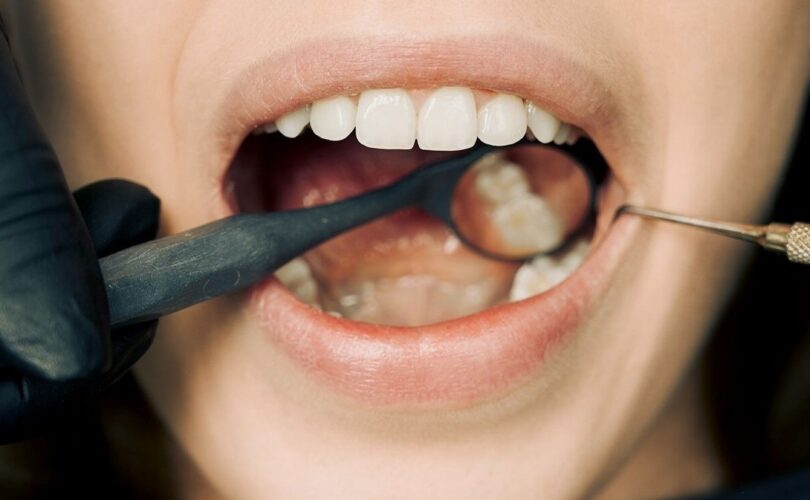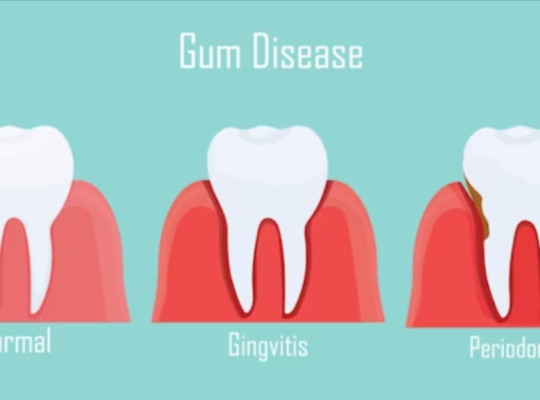Taking proper care of the teeth and gums is necessary for maintaining a good state of health and well-being. Failing to do so can have negative impacts, from mild nuisances to severe health concerns. This article examines the various difficulties commonly caused by poor oral hygiene and provides helpful analysis and potential solutions. By being informed about these issues and practicing the right oral hygiene methods, it is possible to protect the smile and promote a lifetime of dental health.
1/ Cavities
Cavities, also known as dental caries, are an extremely common oral health issue due to inadequate oral hygiene. Bacteria in plaque produce acids that damage the tooth enamel, causing decay. If left untreated, cavities can become worse and lead to pain, infection, and even tooth loss. To avoid this, regular brushing, flossing, and dental check-ups are essential. Fluoride toothpaste and dental sealants can also be beneficial.
2/ Gum Disease
If plaque accumulates and irritates the gums, gum disease, or periodontal disease, can occur. In its early stages, gingivitis, it is reversible with the right oral hygiene. However, if left untreated, it can turn into periodontitis and cause gum recession, tooth loss, and possibly damage to the underlying bone. To prevent this, regular brushing, flossing, and professional dental cleanings are necessary. In some situations, advanced periodontal treatments may be needed.
3/ Bad Breath
If poor oral hygiene is the culprit, persistent bad breath, or halitosis, may be experienced. Bacteria in the mouth release foul-smelling gases, resulting in unpleasant breath. To counteract this, regular brushing, flossing, tongue scraping, and rinsing with an antibacterial mouthwash can be done. Additionally, addressing any underlying dental problems, such as cavities or gum disease, is key for long-term fresh breath.
4/ Tooth Loss
Without proper oral hygiene, cavities, gum disease, and other poor practices can lead to tooth loss. Not only does missing teeth affect the look of a person, but it also affects their ability to chew, speak, and have self-confidence. To prevent this, it is important to keep up with good oral hygiene, seek prompt dental care, and consider restorative options like dental implants or bridges.
5/ Oral Infections
Poor oral hygiene can create an environment conducive to oral infections, such as abscesses or cellulitis. These infections can cause severe pain, and swelling, and can even spread to other parts of the body. To prevent this, proper oral hygiene, including regular brushing, flossing, and professional dental care, must be done. Additionally, any dental issues, like cavities or gum disease, must be treated promptly to reduce the risk of infection.
6/ Dental Erosion
When the enamel is worn away by acids, due to consuming acidic foods and drinks or poor oral hygiene practices, dental erosion can take place. This can lead to tooth sensitivity, discoloration, and weakening of the teeth. To avoid this, it is important to reduce intake of acidic items, brush with a soft-bristled toothbrush, and avoid brushing immediately after consuming acidic substances.
7/ Stained Teeth
If plaque, tartar, and stains accumulate on the teeth, it can lead to a dull and discolored smile due to poor oral hygiene. To prevent this, regular brushing, flossing, and professional dental cleanings are necessary. Additionally, avoiding tobacco products and limiting intake of staining substances like coffee, tea, and red wine can help preserve a bright smile.
8/ TMJ Disorders
Temporomandibular joint (TMJ) disorders can be caused by poor oral hygiene habits, teeth grinding, or jaw misalignment. This can cause jaw pain, clicking or popping sounds, headaches, and difficulty opening or closing the mouth. Practicing good oral hygiene, managing stress, wearing a nightguard to protect against teeth grinding, and seeking professional dental care can help treat TMJ disorder symptoms.
9/ Oral Cancer
Without proper oral hygiene and regular dental check-ups, the risk of oral cancer increases. For successful treatment, early detection is essential. Maintaining good oral hygiene, quitting tobacco use, limiting alcohol consumption, and scheduling regular dental examinations can help identify any potential oral cancer symptoms.
10/ Systemic Health Issues
Poor oral hygiene has been linked to various systemic health issues, including cardiovascular disease, diabetes, respiratory infections, and adverse pregnancy outcomes. By taking care of oral hygiene and getting regular dental care, it is possible to reduce the chances of developing these systemic health problems.
Conclusion
The importance of maintaining good oral hygiene cannot be overstated. Poor oral hygiene can lead to a range of dental problems, including cavities, gum disease, bad breath, tooth loss, oral infections, dental erosion, stained teeth, TMJ disorders, oral cancer, and systemic health issues. By adopting proper oral hygiene practices, such as regular brushing, flossing, and dental check-ups, individuals can prevent these potential problems and maintain a healthy smile for life. Remember, a healthy mouth leads to a healthy body!







